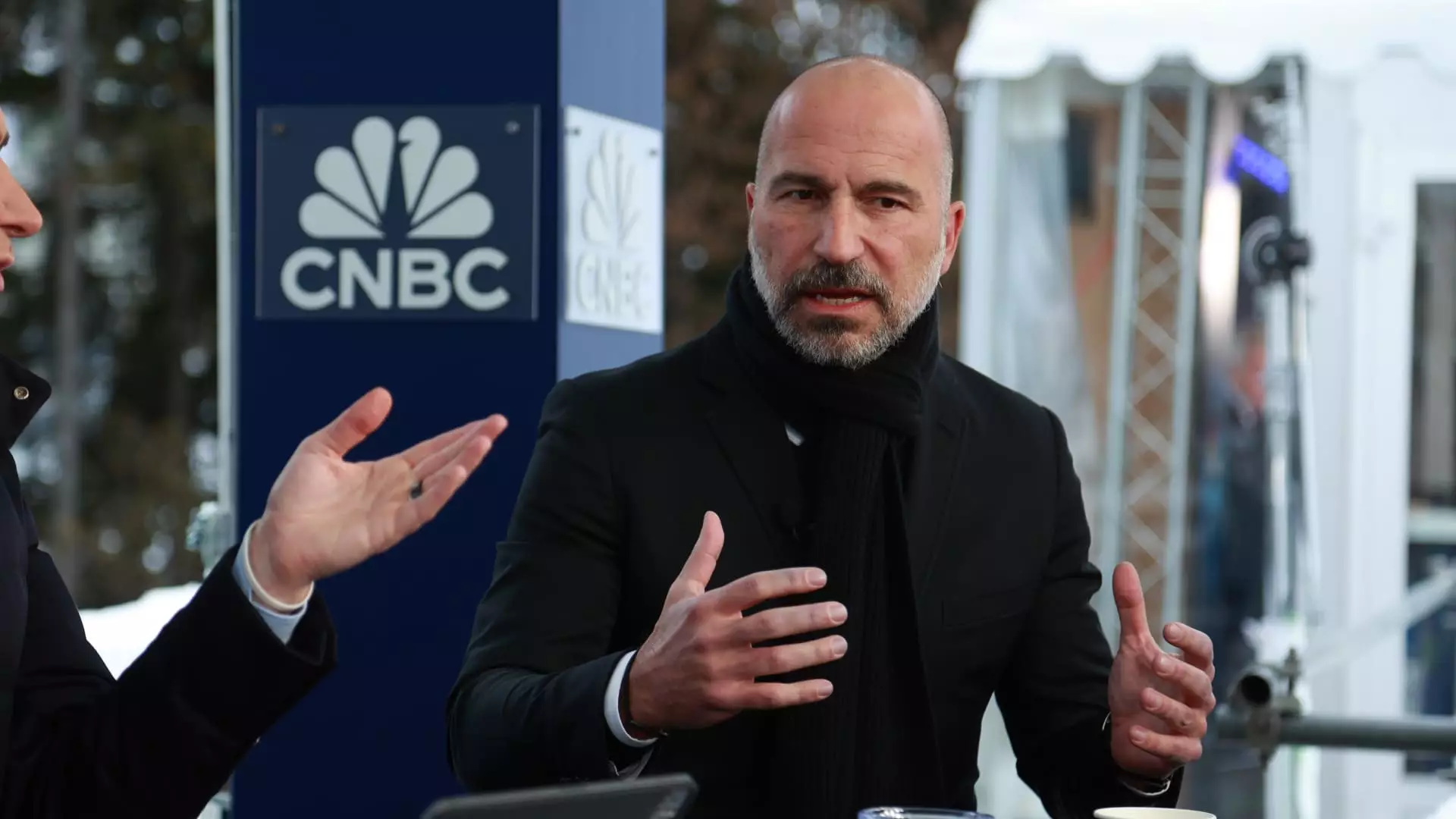Uber has recently released its second-quarter earnings report, surpassing Wall Street estimates by a considerable margin. The company’s earnings per share came in at 47 cents, exceeding the expected 31 cents. Additionally, Uber reported a revenue of $10.7 billion, higher than the anticipated $10.57 billion. These results represent a 16% increase in revenue from the previous year, showcasing the company’s growth and resilience in a highly competitive market.
In the second quarter, Uber’s mobility unit experienced a 23% growth in gross bookings, reaching $20.6 billion. The delivery unit also saw a significant increase of 16% in gross bookings, totaling $18.1 billion. However, the freight unit reported flat gross bookings at $1.27 billion. CEO Dara Khosrowshahi’s strategic focus on expanding the core mobility business and enhancing the customer experience through subscription services has played a key role in driving the company’s success.
Looking ahead to the third quarter, Uber remains optimistic about its growth prospects. The company expects bookings of $40.25 billion to $41.75 billion, indicating a strong demand for its services. While the mid-range estimate of $41 billion fell slightly below the average analyst expectation, Uber anticipates adjusted earnings of $1.58 billion to $1.68 billion, reinforcing its confidence in achieving profitable outcomes in the coming months.
Uber’s recent collaborations with Instacart and Chinese electric vehicle maker BYD demonstrate its commitment to innovation and sustainability. The partnership with Instacart to introduce a “restaurants” tab on the grocery delivery app reflects Uber’s efforts to diversify its revenue streams and enhance the overall user experience. The collaboration with BYD to deploy electric vehicles for Uber drivers in Europe and Latin America underscores the company’s dedication to environmental responsibility and technological advancements in the transportation sector.
As Uber navigates through evolving consumer preferences and market dynamics, the company remains vigilant about potential challenges. The impact of autonomous vehicles on the ridesharing industry, changing consumer spending patterns due to the pandemic, and regulatory developments are key areas of focus for Uber’s leadership team. By proactively addressing these challenges and opportunities, Uber aims to maintain its leadership position in the global mobility market.
Uber’s strong performance in the second quarter and its optimistic outlook for future growth underscore the company’s resilience and adaptability in a rapidly changing business environment. By leveraging strategic partnerships, innovative technologies, and a customer-centric approach, Uber continues to set new benchmarks in the ridesharing industry. With a focus on sustainable growth and value creation, Uber remains well-positioned to drive long-term success and deliver value to its stakeholders.

